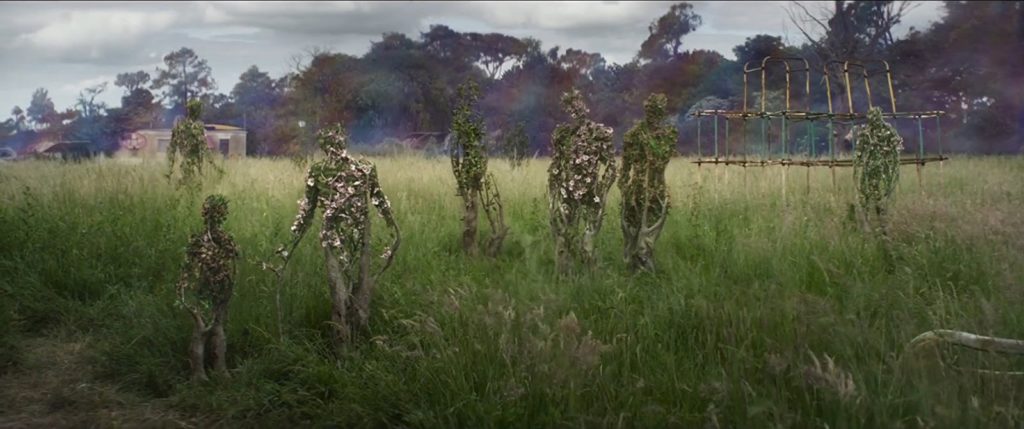
Ever since I had the insight that led me to write the short post on Harpocrates, the implications of it have spread like an invasive weed throughout all the rest of my thinking and perception.
It made its way into my post on the upward and downward paths in the Mass. It showed up in my NOTOCON talk. It’s lurking in the background of my recent article on healing and magic.
It really is just taking over.
The idea is quite simple. Each of us has been implanted with a divine seed. The seed consists in almost nothing more than remembrance of the Light we knew before incarnating. This seed lies dormant and silent within each of us, so that most people are not even aware of its existence. If it speaks to us at all, it is subtle and cryptic. It will speak to us seemingly from without, by guiding us into certain areas of life. It will speak to us seemingly from within, in the form of dreams. But most people take no notice of it.
But when we do take notice of it, a miracle occurs. It begins to grow. And so by seed and root and stem and bud and leaf and flower and fruit it will unfold and articulate itself into the light.
And I’ve come to the realization that the life-cycle of this seed is really the major theme of the spiritual path called Thelema—although the exact same phenomenon shows up in other forms of spirituality as well.
Crowley refers to this phenomenon under various names: secret self, silent self, seed, Aleph, Harpocrates, Hoor-paar-kraat, Virgin, the Fool who impregnates the King’s Daughter, etc. He always associates it with Malkuth, which is the soil in which it is implanted. He refers to its characteristic way of growth or development as true will.
Everything we do spiritually is not for our own sake but rather for the sake of this divine seed implanted within us.
But as we make the cultivation of this god within the theme and focus of our lives, something very odd happens. It begins to eat us. It consumes us.
Normally we understand the events of our lives to constitute a self. Ideas, thoughts, sense impressions, images, desires, words spoken, emotions felt, people loved, events remembered, events hoped for, actions carried out, paths chosen—we consider all of it to be mine. We think it is for a self, in a self, that it belongs to a self, that it is attached to a self, etc.
But as the divine seed sprouts and grows and unfolds within us, all of these happenings become food for, and become incorporated into, the growing body of this god. None of them—not even a simple sense impression or perception—happens for its own sake anymore. None of it—not even the simplest decision—can be said to be mine in the conventional sense of the term. Instead it is another element in the unfolding, developing image of this divine being.
We are the food of the gods.
What I describe may sound alien, even horrifying. But it only seems this way when we think we have something to lose through the process. This comes from the delusion that any of these thoughts, feelings, desires, or actions constitute a unity on their own. They don’t. But by becoming part of the metabolism and life cycle of the god, they acquire unity for the first time, the way the soup of molecules in the atmosphere becomes metabolized and structured into the outward form of a leaf.
At last, saying “I” can mean something.
It also gives new meaning to the expression, “There is no part of me that is not of the gods!”
The turning point for any person spiritually is when they realize that all the pain in their lives, all the difficulty and struggle and hardship, has never come from allowing this process to happen but has always arisen from resisting it. And that all the peace, happiness, and well-being lies in serving the divine within ourselves so it can fruit and release its seed into the world.
This is the means by which one becomes a god.


 It’s in the nature of the human mind to always be in the process of bringing about some new state of affairs. There is a general, indeterminate desire to live, to be, to become, that exists outside of conscious choice. You can call it “conatus” as Spinoza did, “fabrication” as the Buddha did, or “true will” as Crowley did, but I think they’re pointing at the same basic phenomenon. This is why, even though so many people have noticed that life is miserable and full of suffering, suicide is (relatively) rare. Even a person who kills themselves out of despair is operating under the illusion that doing so will bring about a state of affairs better than the one they currently occupy.
It’s in the nature of the human mind to always be in the process of bringing about some new state of affairs. There is a general, indeterminate desire to live, to be, to become, that exists outside of conscious choice. You can call it “conatus” as Spinoza did, “fabrication” as the Buddha did, or “true will” as Crowley did, but I think they’re pointing at the same basic phenomenon. This is why, even though so many people have noticed that life is miserable and full of suffering, suicide is (relatively) rare. Even a person who kills themselves out of despair is operating under the illusion that doing so will bring about a state of affairs better than the one they currently occupy.
 1. “[Hadit] hath no Nature of His own, for He is that to which all Events occur.” (Djeridensis Comment on AL II.2)
1. “[Hadit] hath no Nature of His own, for He is that to which all Events occur.” (Djeridensis Comment on AL II.2)